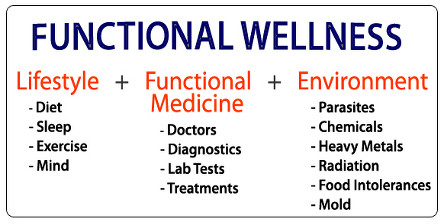Want to feel better, have more energy and perhaps even live longer? Look no further than exercise. The health benefits of regular exercise and physical activity are hard to ignore. And the benefits of exercise are yours for the taking, regardless of your age, sex or physical ability. Need more convincing to exercise? Check out these seven ways exercise can improve your life.
No. 1: Exercise controls weight
Exercise can help prevent excess weight gain or help maintain weight loss. When you engage in physical activity, you burn calories. The more intense the activity, the more calories you burn. You don’t need to set aside large chunks of time for exercise to reap weight-loss benefits. If you can’t do an actual workout, get more active throughout the day in simple ways — by taking the stairs instead of the elevator or revving up your household chores.
No. 2: Exercise combats health conditions and diseases
Worried about heart disease? Hoping to prevent high blood pressure? No matter what your current weight, being active boosts high-density lipoprotein (HDL), or “good,” cholesterol and decreases unhealthy triglycerides. This one-two punch keeps your blood flowing smoothly, which decreases your risk of cardiovascular diseases. In fact, regular physical activity can help you prevent or manage a wide range of health problems and concerns, including stroke, metabolic syndrome, type 2 diabetes, depression, certain types of cancer, arthritis and falls.
No. 3: Exercise improves mood
Need an emotional lift? Or need to blow off some steam after a stressful day? A workout at the gym or a brisk 30-minute walk can help. Physical activity stimulates various brain chemicals that may leave you feeling happier and more relaxed. You may also feel better about your appearance and yourself when you exercise regularly, which can boost your confidence and improve your self-esteem.
No. 4: Exercise boosts energy
Regular physical activity can improve your muscle strength and boost your endurance. Exercise and physical activity deliver oxygen and nutrients to your tissues and help your cardiovascular system work more efficiently. And when your heart and lungs work more efficiently, you have more energy to go about your daily chores.
No. 5: Exercise promotes better sleep
Struggling to fall asleep? Or to stay asleep? Regular physical activity can help you fall asleep faster and deepen your sleep without disturbing the normal architecture of the sleep itself (which has a number of stages, including deep sleep and REM or rapid eye movement). Just don’t exercise too close to bedtime, or you may be too energized to fall asleep. A refreshing and sustained sleep lasting 7-8 hours is medically proven to offer a number of long-term health benefits, including increased life expectancy.
No. 6: Exercise puts the spark into your sex life
Do you feel too tired or too out of shape to enjoy physical intimacy? Regular physical activity can leave you feeling energized and looking better, which may have a positive effect on your sex life. But there’s more to it than that. Regular physical activity can lead to enhanced arousal for women. And men who exercise regularly are less likely to have problems with erectile dysfunction than are men who don’t exercise.
No. 7: Exercise is fun
Exercise and physical activity can be a fun way to spend some time. It gives you a chance to unwind, enjoy the outdoors or simply engage in activities that make you happy. Physical activity can also help you connect with family or friends in a fun social setting. So, take a dance class, hit the hiking trails or join a local gym. Find a physical activity you enjoy, and just do it. If you get bored, try something new.
The bottom line on exercise:
Exercise and physical activity are a great way to feel better, gain health benefits and have fun. As a general goal, aim for at least 30 minutes of physical activity every day. If you want to lose weight or meet specific fitness goals, you may need to exercise more.
Exercise improves self-esteem and overall confidence, which is often translated in both social and work/business productivity and success.
Remember to check with your doctor before starting a new exercise program, even if you do not have any specific health concerns.
A basic medical examination should always be undertaken to assess medical fitness to undertake an exercise programme / personal trainer.

- Recommended medical assessments pre-activity
- Blood Pressure – if uncontrolled activity should be delayed
- Heart examination – to exclude murmurs and narrowing of valves (which can lead to collapse)
- Urine analysis – to exclude undiagnosed diabetes or kidney problems
- Lung function (spirometry) – to assess lung volumes and to exclude conditions such as uncontrolled asthma (which can lead to medical emergencies)
- Musculoskeletal examination – to identify any underying soft tissue or joint issues which may be aggravated by intense physical activity

In functional medicine the idea is to responsibly incorporate clinical research related to physiology mechanisms and interactions, case studies and pharmaceuticals into clinical practice.
Functional medicine is based on nutrition and biochemistry and looks at amino acids, minerals, vitamins, fatty acids, the ecosystem in the bowel, neuro-biochemistry and our immune system.
How these important parameters and pathways interact and impact upon the holistic health of each individual is the central theme of functional medicine.
It connects physiological symptoms and reminds us that none of the organ systems works in isolation, but that we should always be thinking about how diseases are connected: for example, the insulin resistance of diabetes contributes to the inflammation involved in arthritis.
Functional medicine is a stepping stone to a more effective chronic care model that looks at the roots of illness, namely the gene-environment interaction. It recognises that our genes determine our response to environmental factors and that by changing the environment we change the genetic expression.
WHAT IS FUNCTIONAL MEDICINE?
Learning about the approaches taken in different countries can be very useful and this is where functional medicine comes in. Functional medicine is a system of preventive medicine used in the US, said by some to be ‘the single biggest game-changing idea in health care’.
A quarter of participants on functional medicine courses in the US are GPs.
Functional medicine is virtually unheard of here in the UK, although internationally more than 100,000 practitioners from 69 countries have been introduced to the principles and practices and faculty from one-fifth of all medical schools in America and physicians from 44 countries have had some training in functional medicine.
HOW FUNCTIONAL MEDICINE WORKS
Areas studied in functional medicine:
Hormonal and neurotransmitter imbalance
Antioxidant imbalance and mitochondrial function
Detoxification, biotransformation and excretory imbalance
Digestive, absorptive and microbiological imbalance
Immune and inflame imbalance
Nutritional deficiencies and imbalances
Treatments offered
Lifestyle modification
Nutrition supplements
Herbal therapies
Emotional/spiritual awareness
Structural work
 PLATINUM SCREEN: A detailed screening blood and urine profile to assess an individual’s health status
PLATINUM SCREEN: A detailed screening blood and urine profile to assess an individual’s health status
Blood
Full Blood Count – including haemoglobin
White cell differential
ESR
Kidney Function
Liver Function
Glucose
Calcium
Phosphate
Uric Acid
Iron
Ferritin
Transferrin Saturation
Cholesterol
Triglycerides
High-Density Lipoprotein (HDL)
Low-Density Lipoprotein (LDL)
Cholesterol: HDL ratio
Thyroid Stimulating Hormone (TSH)
T4 (thyroxine)
Urine
Urine analysis
pH
Leucocytes
Blood
Ketones
Protein
Nitrites

GOLD SCREEN:A useful initial screening blood profile to assess an individual’s health status
Blood
Full Blood Count – including haemoglobin
White cell differential
ESR
Kidney Function
Liver Function
Glucose
Calcium
Phosphate
Uric Acid
Iron
Ferritin
Transferrin Saturation
Cholesterol
Triglycerides
High-Density Lipoprotein (HDL)
Low-Density Lipoprotein (LDL)
Cholesterol: HDL ratio
 TITANIUM SCREEN: The most thorough and comprehensive multi-system screen looking for absolutely everything that could be wrong
TITANIUM SCREEN: The most thorough and comprehensive multi-system screen looking for absolutely everything that could be wrong
Blood
Full Blood Count – including haemoglobin
White cell differential
ESR
Kidney Function
Liver Function
Glucose
Calcium
Phosphate
Uric Acid
Iron
Ferritin
Transferrin Saturation
Cholesterol
Triglycerides
High-Density Lipoprotein (HDL)
Low-Density Lipoprotein (LDL)
Cholesterol: HDL ratio
Testosterone (men) or FSH (women)
Free testosterone (men)
FSH – Follicle Stimulating Hormone
Thyroid Stimulating Hormone (TSH)
T4 (thyroxine)
T3 (triiodothyronine)
Free T4
Free T3
Thyroid antibodies
Prostate profile for men
PSA
Total PSA: Free PSA
Calculated ratio
Full autoimmune/ autoantibody screen
Insulin
HbA1C
C-Reactive Protein
Vitamin D
Cortisol
HIV
Hepatitis B
Syphilis
Urine
Urine analysis
pH
Leucocytes
Blood
Ketones
Protein
Nitrites
Substances of abuse screen
Chlamydia
Gonorrhoea
Stool
(Stool – culture, ova, cysts and parasites
Lung Function Tests (Spirometry)
Peak flow rate (litres/minute)
FEV1
FVC
FEV1/FVC ratio

